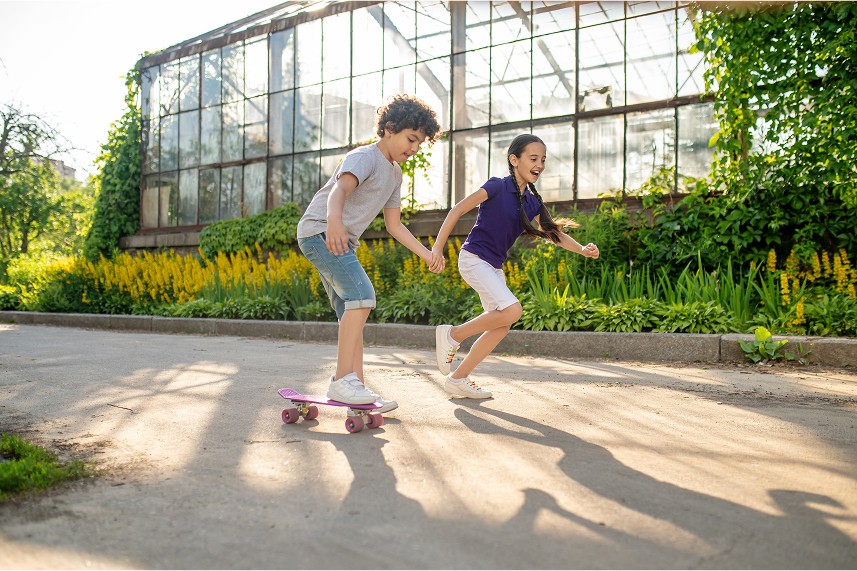Introduction
Outdoor play is more than just fun. It helps children grow strong, stay healthy, and learn about the world around them. As a parent, you can support your child’s growth by giving them time to play outside every day. In fact, outdoor activities are a natural way to boost learning, social skills, and physical health. Let’s explore how simple outdoor play helps your child learn and grow in many ways.
Physical Health Gets a Boost
First of all, outdoor play keeps your child active. Children love to run, jump, and climb. These movements make their muscles strong and improve balance. When your child rides a bike or plays tag, they exercise without even knowing it. As a result, their heart becomes stronger, and their body stays fit.
In addition, playing in the sun helps the body get vitamin D. This vitamin keeps bones strong and supports the immune system. However, always remember to use sunscreen and protect your child’s skin.
Moreover, outdoor play helps prevent obesity. When children stay active, they burn energy and stay at a healthy weight. So, daily outdoor time is good for both the body and mind.
Brain Development Gets Stronger
Not only does outdoor play help the body, but it also helps the brain. When children explore nature, they learn how things work. They notice insects, birds, leaves, and flowers. These simple observations spark curiosity and build thinking skills.
Also, outdoor games often require planning. For example, if your child builds a sandcastle or plays a group game, they learn to focus and solve problems. This kind of play builds memory, attention, and creativity.
Furthermore, nature gives your child a break from screens and schoolwork. It refreshes the mind and reduces stress. As a result, children return to learning with better focus and a fresh mood.
Social Skills Improve Through Play
In addition to physical and brain development, outdoor play helps children build friendships. When kids play together, they learn how to share, take turns, and listen. For instance, playing on the swings or building a fort with friends teaches teamwork and kindness.
At the same time, outdoor play allows your child to deal with small conflicts. They may disagree over a game or who gets the ball first. But with your gentle guidance, they learn how to solve problems in a peaceful way.
Eventually, your child learns to speak clearly, understand others, and become more confident in social settings.
Imagination and Creativity Come Alive
Outdoor spaces open the door to endless imagination. A stick becomes a magic wand. A pile of rocks turns into a treasure. A tree becomes a spaceship. Children love to turn the world into a playground of stories.
Because there are fewer rules outside, children feel free to create their own games. They use their imagination to invent new ideas. This kind of creative thinking helps in school and in life.
In contrast, indoor toys often have one main use. But outside, the possibilities are endless. So, outdoor play boosts your child’s ability to think differently and express new ideas.
Emotional Growth Also Happens Outside
Outdoor activities give your child the chance to feel calm and happy. Fresh air, green trees, and open spaces create peace. Children feel less stress when they run and play freely.
Meanwhile, being outside helps children feel more independent. They climb, explore, and take small safe risks. This builds confidence. When your child sees what they can do, they feel proud.
Additionally, nature helps your child connect with the world. They learn to care for plants, animals, and the environment. This builds kindness and a sense of responsibility.
How to Make Outdoor Time a Daily Habit
Making outdoor play part of your daily routine is easy. Start by taking small steps. For example, go for a walk after dinner, visit a park on weekends, or let your child play in the yard after school.
Moreover, join your child in outdoor play. Kick a ball, fly a kite, or go on a nature walk together. Your time and attention make outdoor play even more special.
Also, provide simple tools like a ball, a jump rope, or chalk. These things invite your child to move, create, and have fun.
If your child says, “I’m bored,” don’t worry. That’s normal. Just give them space and time. Soon, they will find their own games and enjoy being outside.
Conclusion
In conclusion, outdoor activities play a big role in your child’s healthy development. They help your child grow stronger, think better, feel happier, and build social skills. While screens and indoor games are part of life, outdoor play adds a kind of learning that no classroom or app can replace.
Therefore, make outdoor time a regular habit. Celebrate play, learning, and growth under the open sky. As your child explores the world outside, they build the tools they need for a bright, healthy future.

